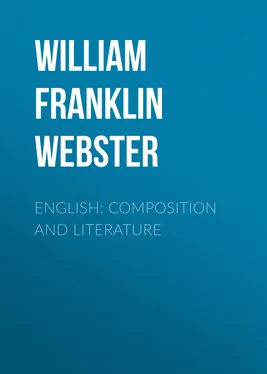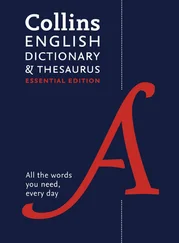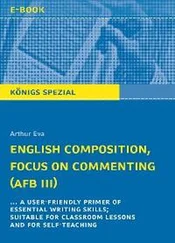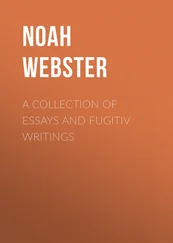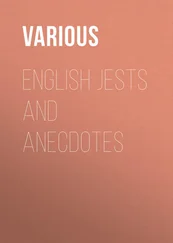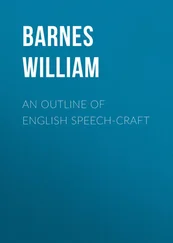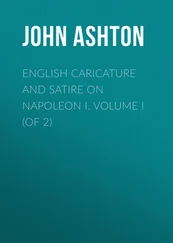William Franklin Webster - English - Composition and Literature
Здесь есть возможность читать онлайн «William Franklin Webster - English - Composition and Literature» — ознакомительный отрывок электронной книги совершенно бесплатно, а после прочтения отрывка купить полную версию. В некоторых случаях можно слушать аудио, скачать через торрент в формате fb2 и присутствует краткое содержание. Жанр: psy_personal, foreign_language, foreign_edu, foreign_antique, на английском языке. Описание произведения, (предисловие) а так же отзывы посетителей доступны на портале библиотеки ЛибКат.
- Название:English: Composition and Literature
- Автор:
- Жанр:
- Год:неизвестен
- ISBN:нет данных
- Рейтинг книги:3 / 5. Голосов: 1
-
Избранное:Добавить в избранное
- Отзывы:
-
Ваша оценка:
- 60
- 1
- 2
- 3
- 4
- 5
English: Composition and Literature: краткое содержание, описание и аннотация
Предлагаем к чтению аннотацию, описание, краткое содержание или предисловие (зависит от того, что написал сам автор книги «English: Composition and Literature»). Если вы не нашли необходимую информацию о книге — напишите в комментариях, мы постараемся отыскать её.
English: Composition and Literature — читать онлайн ознакомительный отрывок
Ниже представлен текст книги, разбитый по страницам. Система сохранения места последней прочитанной страницы, позволяет с удобством читать онлайн бесплатно книгу «English: Composition and Literature», без необходимости каждый раз заново искать на чём Вы остановились. Поставьте закладку, и сможете в любой момент перейти на страницу, на которой закончили чтение.
Интервал:
Закладка:
Knowledge of Subject.The form, then, should suit the matter; and it should be the form in which the author can work. There is a third principle that should guide in the choice of a subject. It should be a subject of which the author knows something. Pupils often exclaim, “What can I write about!” as if they were expected to find something new to write. An exercise in composition has not for its object the proclaiming of any new and unheard-of thing; it is an exercise in the expression of things already known. Even when the subject is known, the treatment offers difficulties enough. It is not true that what is thoroughly understood is easily explained. Many excellent scholars have written very poor text-books because they had not learned the art of expression. A necessary antecedent of all good composition is a full and accurate knowledge of the subject; and even when one knows all about it, the clear expression of the thought will be difficult enough.
To demand accurate knowledge of the subject before an author begins work upon it narrows the field from which themes may be drawn. Burroughs is an authority on all the tenants of our groves; “Wake-Robin,” “Pepacton,” and his other books all show a master’s certain hand. So Stedman is an authority in matters relating to literature. But Burroughs and Stedman alike would find difficulty in writing an essay on “Electricity in the Treatment of Nervous Diseases.” They do not know about it. A boy in school probably knows something of fishing; of this he can write. A girl can tell of “The Last Parlor Concert.” Both could write very entertainingly of their “First Algebra Recitation;” neither could write a convincing essay on “The Advantages of Free Trade.”
Common Subjects.This will seem to limit the list of subjects to the commonplace. The fact is that in a composition exercise the purpose is not to startle the world with some new thing; it is to learn the art of expression. And here in the region of common things, things thoroughly understood, every bit of effort can be given to the manner of expression. The truth is, it does not require much art to make a book containing new and interesting material popular; the matter in the book carries it in spite of poor composition. Popular it may be, but popularity is not immortality. Columns of poorly written articles upon “Dewey” and “The Philippines” have been eagerly read by thousands of Americans; it would require a literary artist of great power to write a one-column article on “Pigs” so that it would be eagerly read by thousands. Real art in composition is much more manifest when an author takes a common subject and treats it in such a way that it glows with new life. Richard Le Gallienne has written about a drove of pigs so beautifully that one forgets all the traditions about these common animals. 2Choose common subjects, then,—subjects that allow every particle of your strength to go into the manner of saying what you already know.
The requirement that the subject shall be common does not mean that the subject shall be trivial. “Sliding to First,” “How Billy won the Game,” with all of this class of subjects, at once put the writer into a trifling, careless attitude toward his work. The subjects themselves seem to call forth a cheap, slangy vocabulary and the vulgar phrases of sporting life. An equally common subject could be selected which would call forth serious, earnest effort. If a boy knew nothing except about ball games, it would be advisable for him to write upon this subject. Such a condition is hardly possible in a high school. Choose common subjects, but subjects that call for earnest thinking and dignified expression.
Interest.Interest is another consideration in the choice of a subject. It applies equally to writer and reader. Choose subjects that are interesting. Not only must an author know about the subject; he must be interested in it. A pupil may have accurate knowledge of the uses of a semicolon; but he would not be likely to succeed in a paragraph about semicolons, largely because he is not much interested in semicolons. This matter of interest is so important that it is well to know what things all persons, authors and readers alike, are interested in. What, then, is generally interesting?
The Familiar.First, the familiar is interesting. When reading a newspaper each one instinctively turns to the local column, or glances down the general news columns to see if there is anything from his home town. To a former resident, Jim Benson’s fence in Annandale is more interesting than the bronze doors of the Congressional Library in Washington. For the same reason a physician lights upon “a new cure for consumption,” a lawyer devours Supreme Court decisions, while the dealer in silks is absorbed in the process of making silk without the aid of the silkworm. Each is interested in that which to him is most familiar.
Human Life.Second, human life in all its phases is interesting. The account of a fire or of a railroad accident takes on a new interest when, in addition to the loss of property, there has been a loss of life. War is horribly fascinating, not so much because there is a wanton destruction of property, as because it involves the slaughter of men. Stories about trees and animals are usually failures, unless handled by artists who breathe into them the life of man. Andersen’s “Tannenbaum” and Kipling’s “Jungle Books” are intensely interesting because in them trees and animals feel and act just as men do.
The Strange.Third, the romantic, the unique, and the impossible are interesting. A new discovery, a new invention, a people of which little is known,—anything new is interesting. The stories of Rider Haggard and Jules Verne have been popular because they deal with things which eye hath not seen. This peculiar trait of man allows him to relish a good fish story, or the latest news from the sea-serpent. Just for the same reason, children love to hear of Little Red Riding Hood and Cinderella. Children and their parents are equally interested in those things which are entirely outside of their own experience.
These, then, are the general conditions which govern the choice of a subject. It shall easily lend itself to the form of discourse chosen; it shall be suited to the peculiar ability of the author; it shall be thoroughly understood by the author,—common, but not trivial; it shall be interesting to both reader and author.
CHAPTER III
NARRATION
Material of Narration.Narration has been defined as the form of discourse which recounts events in a sequence. It includes not only letters, journals, memoirs, biographies, and many histories, but, in addition, that great body of literature which people generally include in the comprehensive term of “stories.”
If this body of literature be examined, it will be found that it deals with things as opposed to ideas; incidents as opposed to propositions. Sometimes, it is true, the author of a story is in reality dealing with ideas. In the fable about “The Hare and the Tortoise,” the tortoise stands for the idea of slow, steady plodding; while the hare is the representative of quick wits which depend on their ability to show a brilliant burst of speed when called upon. The fable teaches better than an essay can that the dullness which perseveres will arrive at success sooner than brilliancy of mind which wastes its time in doing nothing to the purpose. Andersen’s “Ugly Duckling,” Ruskin’s “King of the Golden River,” and Lowell’s “Sir Launfal” stand for deep spiritual ideas, which we understand better for this method of presentation. In an allegory like “Pilgrim’s Progress,” the passions and emotions, the sins and weaknesses of men are treated as if they were real persons. Ideas are represented by living, breathing persons; and we may say that all such narratives deal, not with ideas, but, for want of a better word, with things.
Читать дальшеИнтервал:
Закладка:
Похожие книги на «English: Composition and Literature»
Представляем Вашему вниманию похожие книги на «English: Composition and Literature» списком для выбора. Мы отобрали схожую по названию и смыслу литературу в надежде предоставить читателям больше вариантов отыскать новые, интересные, ещё непрочитанные произведения.
Обсуждение, отзывы о книге «English: Composition and Literature» и просто собственные мнения читателей. Оставьте ваши комментарии, напишите, что Вы думаете о произведении, его смысле или главных героях. Укажите что конкретно понравилось, а что нет, и почему Вы так считаете.
